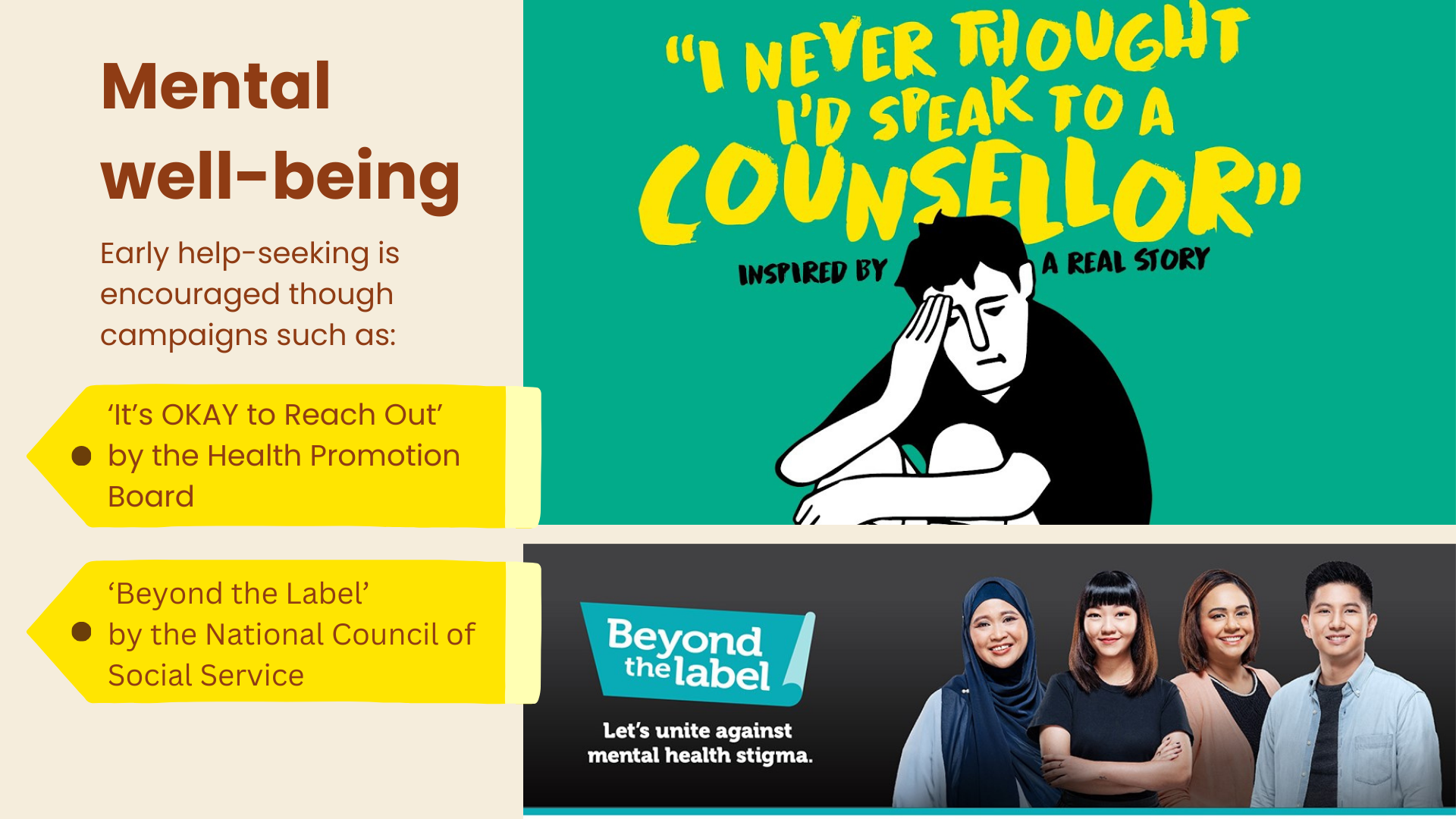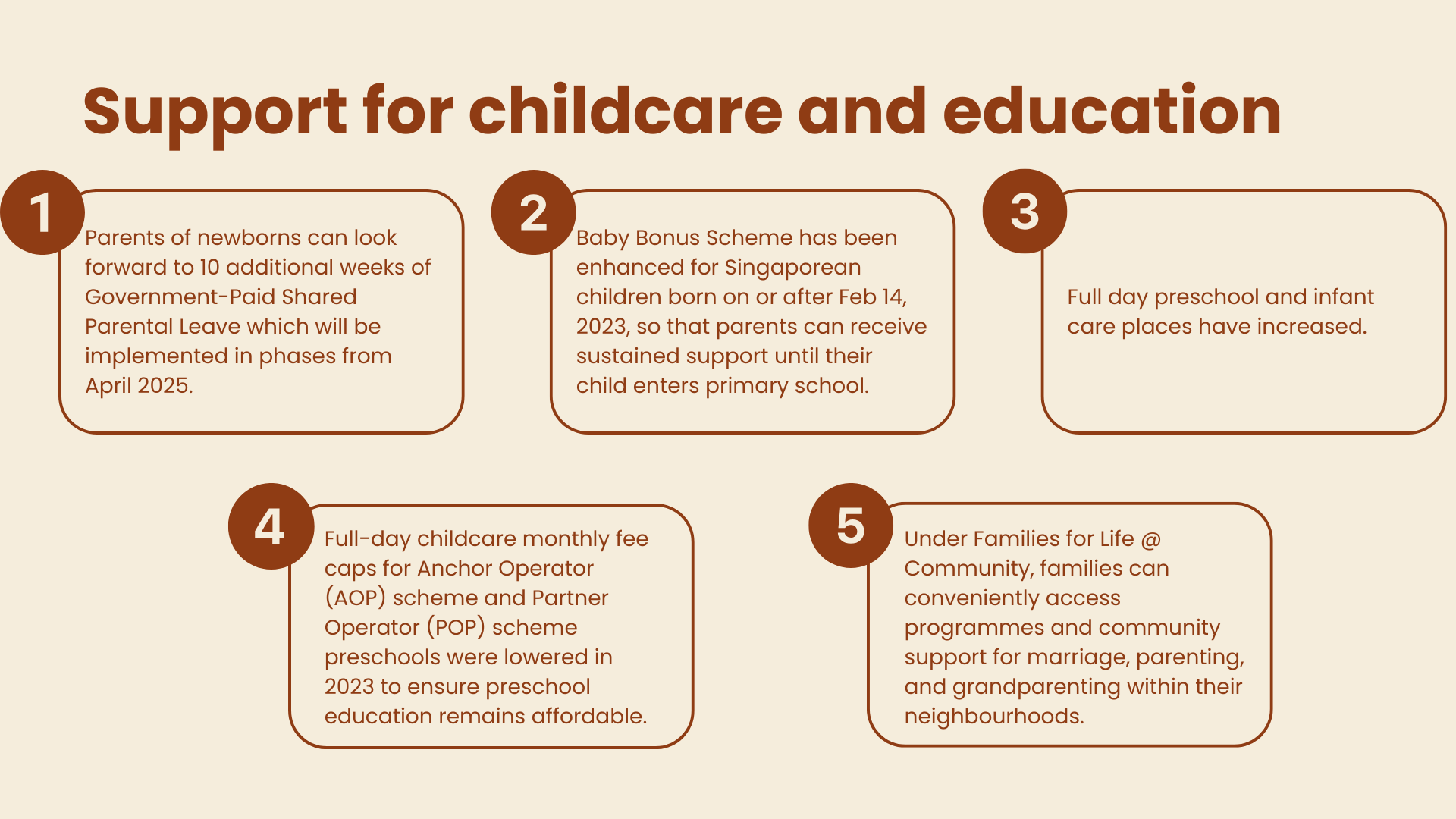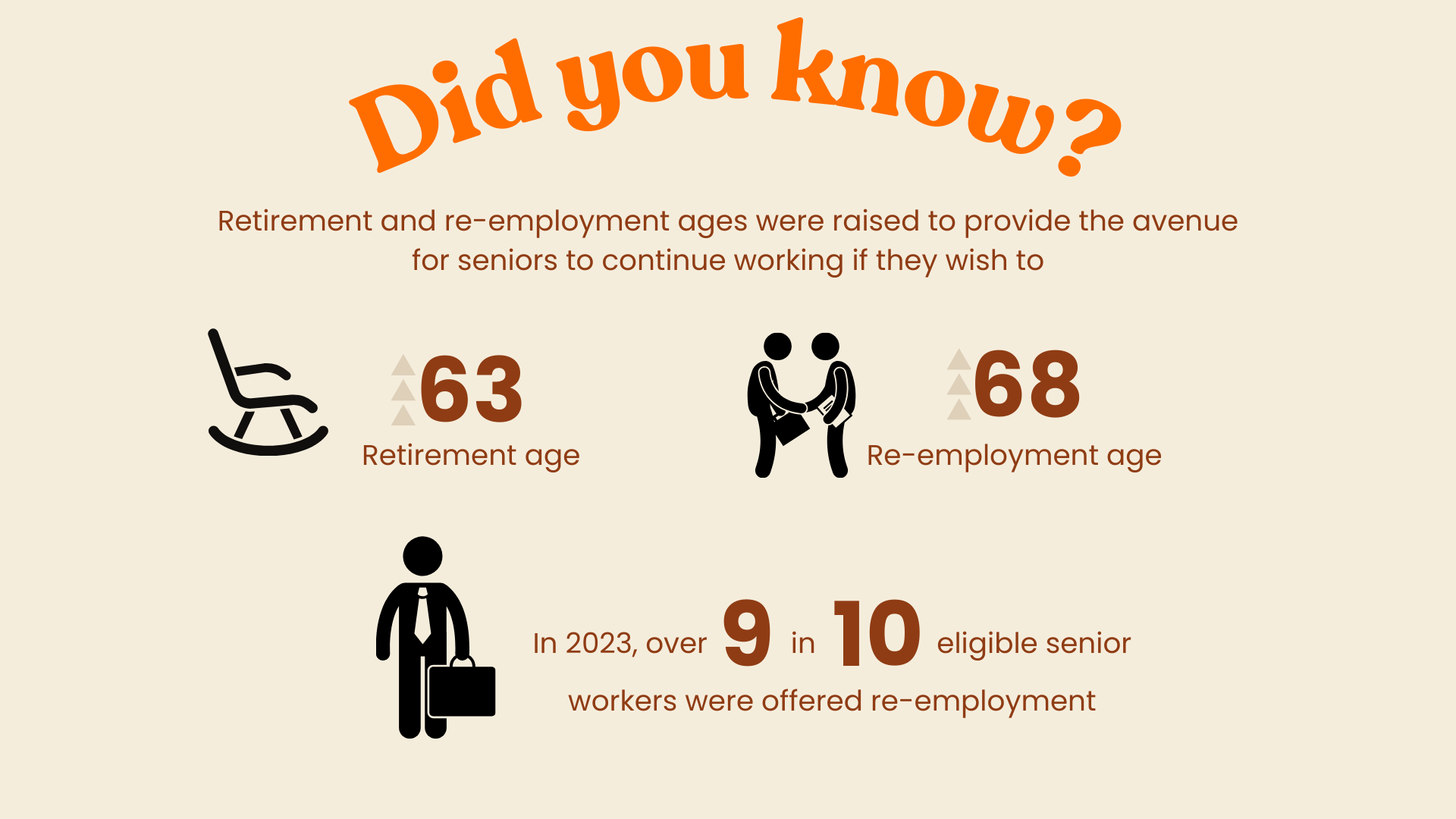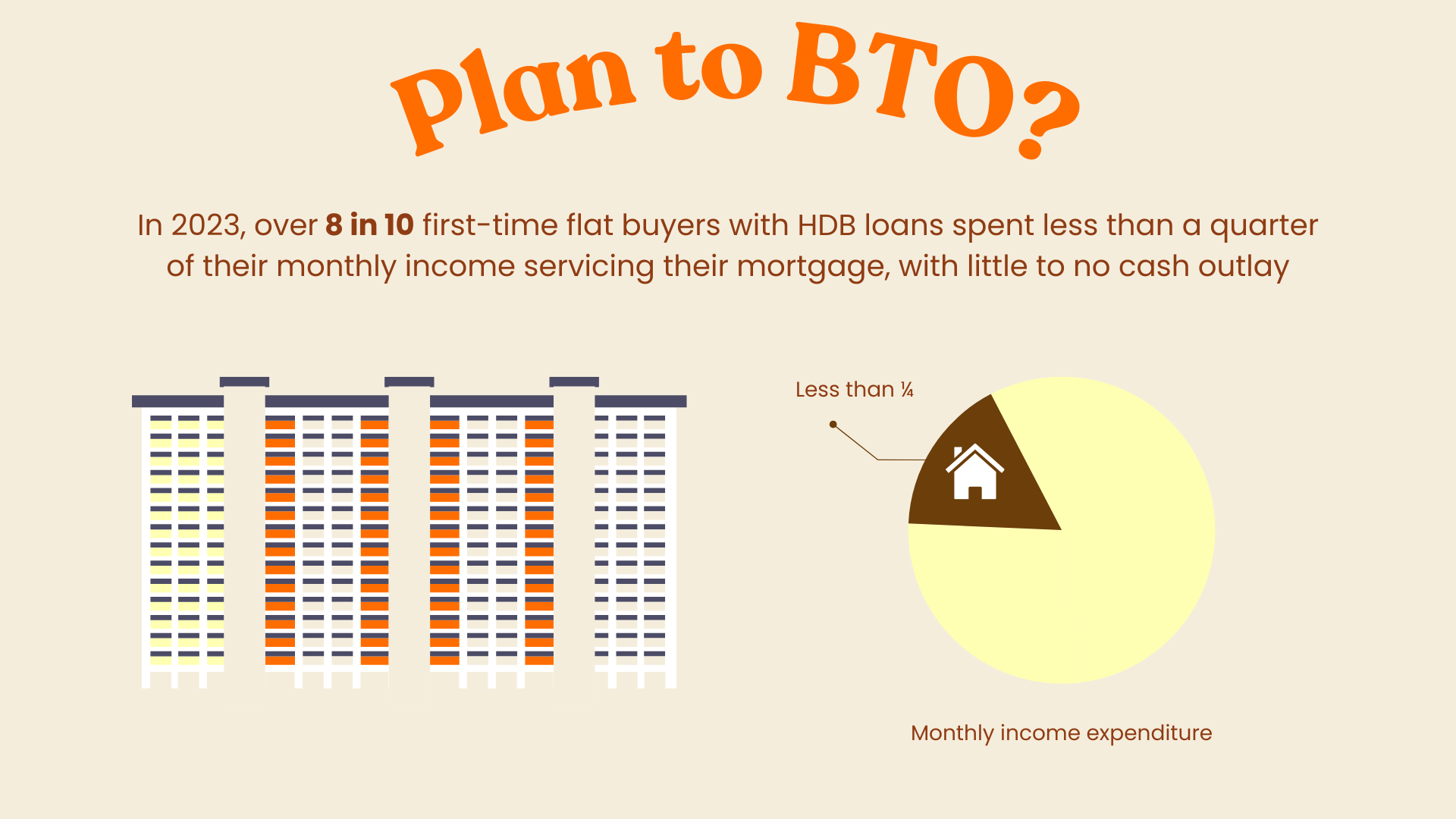When AsiaOne polled readers living in Singapore on their concerns, daily expenses, healthcare, transport, housing, and raising children topped the list. They were also concerned about job security.
Acknowledging these challenges, we wanted to find out how Singapore is doing in areas of interest and concern to citizens: what's working, and what's changing?
To do this, we turned to the latest Singapore Public Sector Outcomes Review (SPOR) that was published on Nov 1, 2024.
To our surprise, we found many initiatives that have been introduced or enhanced in recent years. Here are some important takeaways:
Health and Wellness
While the prevalence of obesity and high blood pressure have increased, we made progress reducing the prevalence of high cholesterol and diabetes since 2019. More Singaporeans are taking charge of their health, with over one million residents enrolled in Healthier SG with a primary healthcare provider. Additionally, healthcare remains affordable for all through subsidies, MediShield Life and MediSave.
Among residents, prevalence of self-reported poor mental health decreased from 2022 to 2023, although they remained above pre-Covid-19 levels. More residents expressed willingness to seek help and have better access and support through initiatives such as "It's OKAY to Reach Out" and "Beyond the Label".

These efforts to improve overall wellbeing work in tandem with healthcare policies to help Singaporeans live longer and fuller lives.
Family
Although the total fertility rate had declined to 0.97 in 2023 due to fewer and later marriages and births, many young Singaporeans still aspire towards marriage and parenthood.
Good thing to note then, that more measures have been implemented to support Singaporeans across their marriage and parenthood journey.

Retirement
With increasing life expectancies, nearly one in four Singaporeans will be aged 65 and above by 2030.
The SPOR report outlined various government efforts to increase employability and employment opportunities for our mature workers, such as the raising of retirement and re-employment ages, and Senior Employment Credit scheme which provides wage offsets to employers.

Measures are also in place to help seniors strengthen retirement adequacy. The Majulah Package provides Singapore citizens born in 1973 or earlier with an additional boost for their retirement, to help them with savings and healthcare needs.
Social Safety Nets
Income inequality in Singapore, as measured by the Gini coefficient, fell to 0.371 in 2023 - its lowest in over two decades - after accounting for taxes and transfers. This reflects the redistributive effect of government support measures and taxes, as well as efforts to uplift wages of lower-wage workers.
In 2023, 388,000 lower-wage employees benefitted from around $914 million in Workfare Income Supplement disbursements. More support for daily expenses was also provided through the Assurance Package.
Help is also provided to vulnerable individuals and families, as the government works alongside Social Service Agencies and the community to establish safeguards and measures. These include support for children from lower-income families through KidSTART, early intervention programmes for children with developmental needs who require different levels of support, and partnering with the community to help rough sleepers and homeless individuals.
Housing and Amenities
Planning to BTO? You are in luck - in 2023, the median wait time for BTO flats has shortened.
Around 80 per cent of resident households are living in HDB flats, more than 90 per cent of whom are homeowners. With public housing being a vital part of the Singaporean identity, it is reassuring that the government is committed to ensuring that public housing remains accessible and affordable for all.

Besides shortening waiting times for BTOs, efforts have also been made to rejuvenate our housing estates. About 70 per cent of flats built before 1998 have undergone the Home Improvement Programme and all eligible blocks built before 1996 have been selected for the Neighbourhood Renewal Programme.
Transport
Our public transport system has undergone improvements for better convenience and connectivity whether we walk, cycle or ride.
92 per cent of residents could reach their nearest neighbourhood centre within 20 minutes, while 67 per cent of residents could commute to work within 45 minutes on Walk-Cycle-Ride modes during peak periods.
Jobs and Economy
Job security is a growing consideration for many here. Over 40 per cent of AsiaOne readers who were polled cited concerns over keeping their jobs.
More opportunities are available for local workers to take charge of their careers including through career support programmes. Businesses have also committed to helping workers upskill and reskill. In 2023, 23,000 businesses sent over 220,000 employees for training programmes supported by SkillsFuture Singapore - a 15 per cent increase from 2022.
Singaporeans are also supported as they advance in corporate leadership through initiatives such as the Global Business Leaders Programme and the Singapore Leaders Network Fellowship.
Beyond this, Singapore remains a choice location for new investments and expansion of business activities.
Spirit of ForwardSG
Over 200,000 Singaporeans from all walks of life were engaged through the Forward Singapore exercise launched in June 2022, to chart Singapore's way forward and uplift those around us.
An example is ComLink+, through which we have seen about 1,600 volunteer befrienders helping lower-income households progress towards stability, self-reliance, and social mobility. Corporate and philanthropic organisations further contribute with financial top-ups that support preschool education, employment, debt clearance, home ownership, and more.
Summary of Takeaways
The SPOR report recognised the challenges that Singaporeans face in realising their aspirations while detailing various government and community efforts to collectively address these issues.
Every Singaporean has their own unique stories and challenges. But what heartens us is our strengthening social compact that gives us hope that none of us should have to go at it alone.
To find out more about how Singapore has fared in areas of national interest, visit go.gov.sg/SPOR.
This article is brought to you in partnership with the Ministry of Finance.
kimi.ang@asiaone.com

